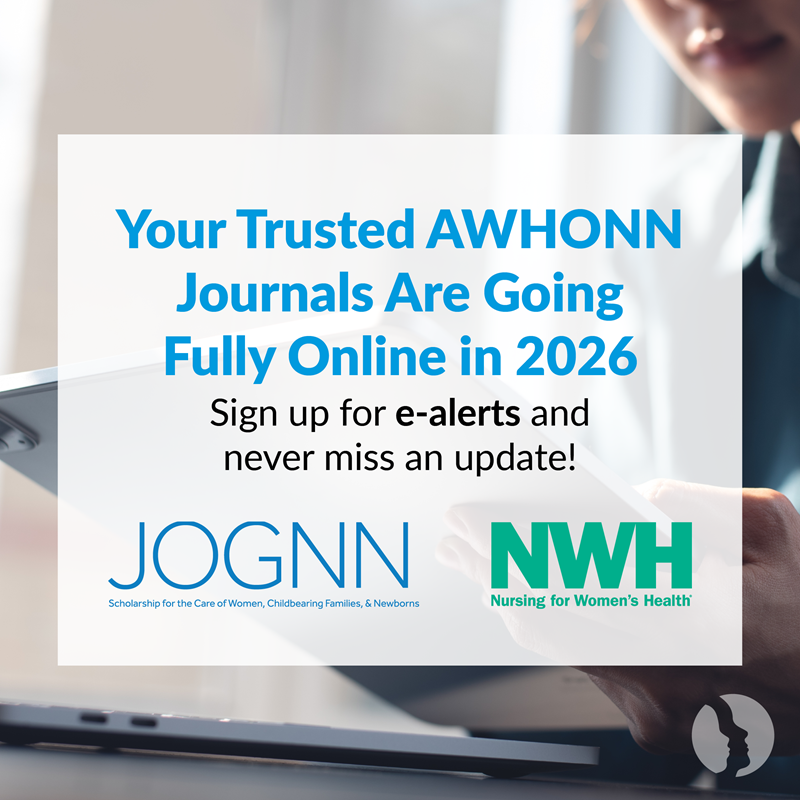High Risk Perinatal Resources
- High Risk Critical Care Obstetric- 5th Ed.
This new resource is written for all perinatal clinicians who provide care to pregnant women whether they identify, stabilize and transfer or care for the woman with high-risk or critical care conditions. - Core Curriculum for Neonatal Intensive Care Nursing, 6th Edition
The 6th edition includes evidence-based best practices in caring for preterm infants, medications and antepartum-intrapartum complications. - Perinatal Nursing – 5th Edition
This updated, evidence-based edition is a valuable resource for perinatal nurses practicing in all levels of maternal care, mother-baby units, newborn care, and for those nurses studying for certification examinations. Perinatal units should have this book as a ready resource for clinicians.
- Magnet Template: POST BIRTH Warning Signs
POST-BIRTH Magnet template for hospitals. Magnet template can be downloaded, a hospital logo can be added, and magnets can be printed. Templates are available in English, Spanish, Arabic, Mandarin Chinese, and Haitian Creole. - Basic, High-Risk and Critical-Care Intrapartum Nursing- 6th Ed.
This updated guide describes the framework for core content of educational programs and clinical practicums for fetal heart rate monitoring in obstetric practice. Areas of competence for clinicians whose practice includes antepartum and intrapartum fetal heart rate monitoring are provided. - Nursing Care of the Woman with Diabetes in Pregnancy
AWHONN’s first evidence-based clinical practice guideline addressing diabetes, provides comprehensive recommendations for nurses who care for women with diabetes– types 1 or 2 and gestational diabetes (A1 or A2)–during pregnancy, labor and postpartum, and their babies. - Cervical Ripening and Labor Induction and Augmentation, 5th Edition
Cervical ripening, induction and augmentation of labor are common interventions on labor and delivery units, and nurses provide most of the hands-on, direct care for women undergoing these procedures. This practice monograph includes information on mechanical and pharmacologic methods for cervical ripening; labor induction and augmentation with oxytocin, a high alert drug; and nurse staffing levels and skills needed to provide safe and effective care with the use of cervical ripening and induction agents. - Perinatal Mood and Anxiety Disorders: Research and Implications for Nursing Care
The publication of this practice monograph was supported by an educational grant from Pampers. The monograph is provided as an open access document and may be downloaded for free.
- Anaphylactoid Syndrome of Pregnancy Journal CNE
This journal CNE activity provides knowledge on recognition and response to Anaphylactoid Syndrome of Pregnancy (ASP).
- Advanced Cardiac Life Support in Obstetric Settings
AWHONN does not mandate advanced cardiac life support (ACLS) competence validation for perinatal nurses who provide post-analgesia or post-anesthesia care to women who have undergone obstetric surgery. However, each hospital must develop a plan to ensure that clinicians capable of providing ACLS are available at all times.
- POST-BIRTH Warning Signs Online Education Course
AWHONN’s Post-Birth Warning Signs online education course provides a standard approach to postpartum pre-and post-discharge education for all women, regardless of risk factors. This course is designed to educate nurses and other obstetric care providers about the maternal morbidity and mortality crisis in the U.S., particularly in the postpartum period. - Mothers and Babies First (Relias): Hypertension
RELIAS OB NOW REVIEWED AND VALIDATED BY AWHONN! - Mothers and Babies First (Relias): OB Hemorrhage
RELIAS OB NOW REVIEWED AND VALIDATED BY AWHONN! - Mothers and Babies First (Relias): Shoulder Dystocia
RELIAS OB NOW REVIEWED AND VALIDATED BY AWHONN! - Obstetric Patient Safety Classroom Course for Postpartum Hemorrhage- Instructor Resource Manual
- Obstetric Patient Safety Classroom Course for Postpartum Hemorrhage- Student Materials
- Critical Care Obstetrics Education (CCOE) Eight Course Program
AWHONN’s Critical Care Obstetrics Education (CCOE) 8-course library will prepare clinicians to identify high-risk and critically ill pregnant people who need treatment, stabilization, or transfer to a higher level of care. - Critical Care Obstetrics Four Course Program-Bundle 1: PPH, PSH, Cardiac, Sepsis
Throughout these courses, you will learn the physiologic changes in pregnancy as well as additional risk factors that predispose pregnant people to hypertensive disorders, postpartum hemorrhage, and sepsis. - Critical Care Obstetrics Four Course Program-Bundle 2: DIC, DKA, VTE, Hemodyndmic
Through these courses, you will learn the physiologic changes in pregnancy as well as additional risk factors that predispose pregnant people to thromboembolic events, DKA, and DIC.
- Critical Care Obstetrics Education (CCOE) Perinatal Safety Standards Bundle: PPH and PSH
This 2-course safety bundle is comprised of a module on Postpartum Hemorrhage and a module on Severe Hypertension/Preeclampsia.
- Perinatal Orientation and Education Program (POEP)
The Perinatal Orientation and Education Program (POEP) is highly effective in providing evidence-based, clinical education to perinatal nurses. POEP helps to mitigate patient risk, increase staff efficiency, and promote optimal obstetric outcomes while saving your healthcare system time and money. With POEP, your facility can establish consistent provision of high-quality care for mothers and infants. - Neonatal Orientation and Education Program, Fourth Edition (NOEP)
NOEP is a comprehensive, educational program that is highly effective in providing evidence-based, clinical education to neonatal nurses. NOEP helps to mitigate neonatal risk, increase staff efficiency, and promote optimal neonatal outcomes while saving your healthcare system time and money. With NOEP, your facility can establish consistent provision of high-quality care for high-risk and vulnerable newborns.
- Obstetric Patient Safety: OB Emergencies Workshop
Obstetric emergencies are high-acuity, low-frequency events. Despite efforts from many collaborating agencies and professional organizations, the maternal mortality rate in the United States continues to remain high. The prerequisite on-line courses are designed to help you identify, assess, and manage women with specific obstetric emergencies such as hypertensive disorders of pregnancy, postpartum hemorrhage, and maternal sepsis. The courses utilize critical thinking concepts presented in a case study format that allow you to apply the knowledge you learn. The live workshop allows for practice by means of simulation for nurses and providers to reduce the risk of maternal injury and death.























